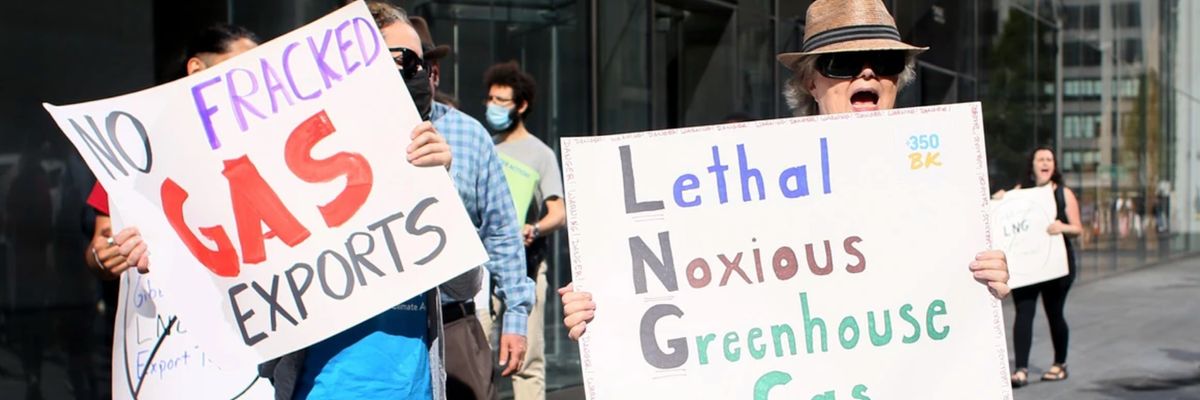Climate and environment defenders this week welcomed the cancellation of a controversial facility in the Florida Panhandle that would have exported up to nearly 4 billion cubic feet of planet-heating liquefied natural gas per year.
Miami-based Nopetro announced Monday that the company would scrap plans to build a 60-acre liquefied natural gas (LNG) export terminal on the grounds of a shuttered paper mill in a historically Black neighborhood of Port St. Joe in Gulf County.
While Nopetro said the decision was made last year "purely due to market conditions," the consumer advocacy group Public Citizen noted the role that years of community activism and the group's own lawsuit may have played in the project's cancellation.
"I think it's a real testament to the incredible organizing by the people of Port St. Joe," Public Citizen Energy Program director Tyson Slocum told WMBB. "Once they started to learn about what had been negotiated behind closed doors, they rose up in very clear opposition to building an LNG export terminal."
"Nopetro wanted to cut corners, and rush the project past the community with little to no notice," Slocum said in a separate statement. "Public Citizen has been privileged to work with so many dozens of incredible Port St. Joe residents who courageously took a stand for their community."
While proponents argue that LNG is among the safest fossil fuels to produce and transport, critics note the numerous explosions and fires at gas facilities in recent years, as well as the worsening planetary climate emergency caused and exacerbated by fossil fuel extraction and use.
Public Citizen's lawsuit—which the group is continuing—seeks to determine whether Nopetro's proposed project fell under the Federal Energy Regulatory Commission's (FERC) jurisdiction under the Natural Gas Act. If the U.S. District Court in Washington, D.C. says it does, then Nopetro would not be able to build the facility until FERC completes an environmental impact review.
Critics claim Nopetro intentionally designed the project to dodge FERC oversight.
Slocum explained why Public Citizen will continue its litigation even though the project was canceled.
"The lawsuit is bigger than just Port St. Joe," he toldThe Star. "It's about closing this loophole so that other communities aren't exposed to the ability of an LNG export terminal to build the facility without FERC oversight."
Dannie Bolden, one of the community leaders opposed to the terminal, said that while he "was relieved to hear Nopetro decided not to pursue the construction," opponents "must remain steadfast to ensure there [are] no LNG facility constructed along Florida's Panhandle."
